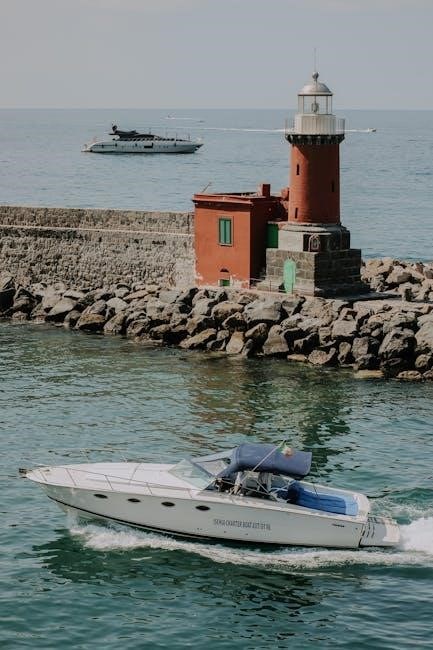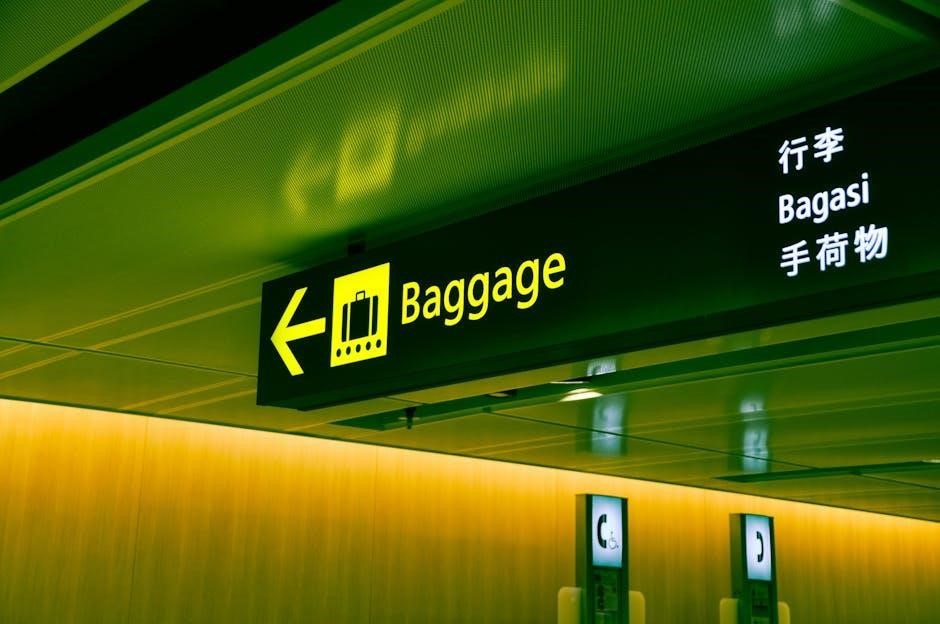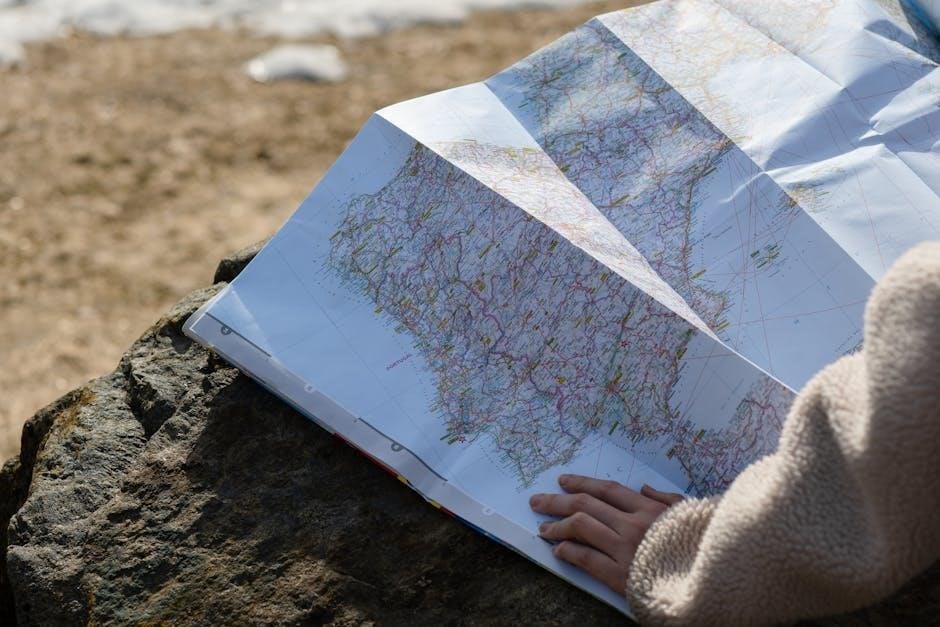Sex tourism involves traveling to engage in sexual activities, often exploiting vulnerable individuals, particularly women and children. It raises significant ethical concerns and operates globally.
1.1 Definition and Scope
Sex tourism is defined as travel planned specifically for the purpose of engaging in sexual activities, often involving commercial sex workers. It is a global phenomenon that exploits vulnerable populations, particularly women and children, and raises significant ethical and legal concerns. The scope of sex tourism extends across international borders, with travelers seeking destinations where prostitution is legal or poorly regulated. This industry is driven by economic disparities, globalization, and the demand for sexual services. Sex tourism encompasses a wide range of activities, from organized trips to brothels to informal encounters with local individuals. Its prevalence highlights the intersection of tourism, exploitation, and human rights violations, making it a complex issue to address. Understanding its definition and scope is crucial for combating its harmful effects on communities and individuals worldwide.
1.2 Importance of Understanding the Industry
Understanding the sex tourism industry is crucial for addressing its far-reaching implications. It is linked to human rights violations, exploitation, and economic disparities, making it a complex issue to tackle. The industry thrives on globalization, with tourists often traveling to countries where regulations are lax or enforcement is weak. Recognizing the scale and dynamics of sex tourism helps identify strategies to combat exploitation and protect vulnerable populations, particularly women and children. It also sheds light on the ethical dilemmas surrounding tourism and sexual exploitation. By understanding the industry, stakeholders can develop policies and programs to mitigate its harmful effects and promote responsible travel practices. Ultimately, awareness is key to fostering global efforts to address the societal and moral challenges posed by sex tourism.

Key Definitions
Sex tourism involves traveling to engage in sexual activities, typically with commercial sex workers. It differs from casual sex during travel with locals or fellow travelers.
2.1 Sex Tourism vs. Casual Sex Travel
Sex tourism is defined as travel planned specifically for the purpose of engaging in sexual activities, often with commercial sex workers. It differs from casual sex travel, which involves spontaneous sexual encounters with locals or fellow travelers during a trip. The key distinction lies in intent and payment: sex tourism typically involves monetary exchange, while casual sex during travel is not transactional. Both practices raise ethical concerns, particularly regarding exploitation and consent. Sex tourism is often linked to human trafficking and gender inequality, whereas casual sex travel is generally viewed as a personal choice. Understanding these differences is crucial for addressing the broader societal and moral implications of each practice.
2.2 Types of Sex Tourism
Sex tourism can be categorized into several types, each with distinct characteristics. One prominent form is child sex tourism, which involves the exploitation of minors for sexual purposes, often linked to human trafficking. Another type is women-centered sex tourism, where women, often from economically disadvantaged backgrounds, are coerced or forced into prostitution. There is also men who have sex with men (MSM) tourism, which carries heightened risks of HIV transmission due to multiple sexual encounters. Additionally, virtual sex tourism has emerged, involving digital interactions without physical travel. Each type raises significant ethical and legal concerns, particularly regarding consent, exploitation, and human rights violations. Recognizing these variations is essential for addressing the broader societal and moral challenges posed by the industry.

History of Sex Tourism
Sex tourism has deep historical roots, evolving from ancient practices to modern-day exploitation, often linked to human trafficking and economic disparities, disproportionately affecting women and children globally.
3.1 Early Beginnings
The origins of sex tourism can be traced back to ancient times, with evidence of organized sexual exploitation in various cultures. However, the modern concept emerged in the mid-20th century, particularly in Southeast Asia during the Vietnam War era. Countries like Thailand became hubs for soldiers seeking sexual services, laying the groundwork for the industry’s expansion. The phenomenon grew as global travel increased, with destinations like Amsterdam and Hamburg gaining notoriety for their red-light districts. Economic disparities and gender inequality fueled the rise of sex tourism, as poverty drove individuals into the trade. Early forms of the industry were often linked to colonialism and the exploitation of marginalized communities, setting the stage for its evolution into a global phenomenon.
3.2 Evolution Over Time
Sex tourism has evolved significantly over the decades, shaped by globalization, economic shifts, and changing social norms. The post-World War II era saw the rise of international travel, with destinations like Thailand and the Netherlands becoming synonymous with the industry. The Vietnam War further accelerated this trend, as soldiers sought sexual services during leave. By the 1980s and 1990s, sex tourism had become a lucrative global industry, with organized tours and online platforms facilitating access. Today, the industry continues to adapt, with new destinations emerging and technologies enabling discreet bookings. Despite growing awareness of exploitation, demand remains high, driven by economic disparities and the objectification of vulnerable populations. The evolution of sex tourism reflects broader societal issues, including inequality and the commodification of human bodies.

Causes of Sex Tourism
Rooted in poverty and gender inequality, sex tourism is driven by globalization and economic disparities, exploiting vulnerable populations, particularly women and children, while state policies often enable it.
4.1 Economic Factors
Economic disparities drive the sex tourism industry, as poverty and lack of opportunities in destination countries create a supply of vulnerable individuals. Many women and children are forced into prostitution due to economic necessity, while tourism demand fuels exploitation. Globalization has intensified this trend, making it easier for tourists to access these services. Some governments inadvertently support the industry by promoting tourism without strict regulations, prioritizing economic gains over human rights. The lucrative nature of sex tourism contributes significantly to local economies, making it a challenging issue to address. These economic dynamics perpetuate a cycle of exploitation, where vulnerable populations are commodified to meet tourist demands;
4.2 Social and Cultural Factors
Social and cultural factors play a significant role in perpetuating sex tourism. Societal norms in some cultures normalize the exploitation of women and children, often condoning gender inequality and power imbalances. Gender roles in destination countries frequently place women in vulnerable positions, making them targets for exploitation. Additionally, cultural attitudes toward sexuality in tourist-origin countries can drive demand for commercial sex. Globalization has further normalized these practices, creating a sense of accessibility and anonymity for tourists. Western privilege and perceptions of affordability in developing nations exacerbate the issue. These cultural dynamics, combined with societal acceptance in some regions, create an environment where sex tourism thrives, often masking the underlying exploitation and human rights violations.

Popular Destinations
Thailand, the Netherlands, Germany, Brazil, and the Dominican Republic are prominent destinations. Thailand’s red-light districts, the Netherlands’ legalized brothels, Germany’s organized brothels, Brazil’s Carnival, and the Dominican Republic’s resorts attract tourists worldwide.
5.1 Top Countries
Thailand, the Netherlands, Germany, Brazil, and the Dominican Republic are among the most popular destinations for sex tourism; Thailand’s vibrant nightlife, particularly in cities like Bangkok and Pattaya, attracts millions annually. The Netherlands is renowned for its legalized and regulated brothels, making it a hub for those seeking legal commercial sex services. Germany’s liberal laws and organized brothels also draw significant numbers. Brazil’s Carnival celebrations and tropical climate create an allure for sex tourism, while the Dominican Republic’s resorts and beaches are marketed as paradises for adult experiences. These countries often combine permissive attitudes, affordable prices, and well-established sex industries, making them magnets for tourists seeking such activities. Their popularity is further fueled by global advertising and the demand for exotic experiences.
5.2 Emerging Hotspots
Emerging destinations for sex tourism include Colombia, Peru, and Costa Rica, where rising tourism infrastructure and economic growth are creating new opportunities. Colombia’s transformation from conflict to a vibrant tourist hub has attracted attention, with cities like Cartagena and Medellín offering a mix of culture and nightlife. Peru’s growing popularity, particularly in Lima, is linked to its rich cultural heritage and increasingly liberal attitudes. Costa Rica, known for its luxury tourism, is also seeing a rise in adult-oriented travel due to its privacy-focused accommodations and tropical settings. These countries are becoming attractive alternatives to traditional hotspots, driven by affordability, accessibility, and the demand for new experiences; However, their emergence also raises concerns about regulation, exploitation, and the ethical implications of such tourism. As these destinations grow in popularity, they face challenges in balancing economic benefits with social responsibility.

Health Considerations
Sex tourism poses significant health risks, including sexually transmitted infections (STIs) and HIV. Precautions like condom use and vaccinations are essential to mitigate these risks.
6.1 Health Risks
Sex tourism poses significant health risks, including the transmission of sexually transmitted infections (STIs) such as HIV, gonorrhea, and chlamydia. Unprotected sexual encounters, often driven by the desire for cheaper or riskier experiences, exacerbate these risks. Many sex workers in tourist destinations lack access to regular healthcare, increasing the likelihood of undiagnosed infections. Additionally, the anonymity of tourism environments can lead to reckless behavior, further heightening health dangers. Travelers may also face challenges in accessing medical care in foreign countries, complicating treatment. These risks are compounded by the vulnerability of women and children, who are often exploited in the industry. The intersection of health and exploitation underscores the urgent need for awareness and prevention measures to protect both tourists and local populations.
6.2 Precautions and Safety Measures
Engaging in sex tourism requires careful consideration of personal safety and ethical practices. Travelers should research local laws and regulations to avoid legal consequences, as prostitution laws vary widely. Using protection consistently is crucial to prevent sexually transmitted infections (STIs), including HIV. It is also important to be aware of one’s surroundings to avoid scams, theft, or violence. Travelers should ensure they understand the local culture and societal norms to minimize risks. Additionally, being informed about the exploitation often tied to the industry can help individuals make more responsible choices. Prioritizing health and safety measures, such as knowing where to access medical care, is essential. Ultimately, awareness and caution can mitigate some of the dangers associated with sex tourism.

Legal Landscape
Sex tourism operates within a complex legal framework, with varying international and regional laws. U.S. law extends extraterritorially, criminalizing commercial sex abroad, while other nations have ambiguous regulations.
7.1 International Laws
International laws addressing sex tourism are complex and vary widely. The Palermo Protocol targets human trafficking, a significant component of the industry. Many nations criminalize child sex tourism under the Convention on the Rights of the Child. The U.S. specifically criminalizes sex tourism through extraterritorial laws, prosecuting citizens for engaging in commercial sex abroad, even in countries where it’s legal. The Mann Act prohibits transporting individuals across borders for illegal sexual activities. Despite these efforts, enforcement remains inconsistent due to differing legal frameworks and jurisdictional challenges. Some countries tolerate or even promote sex tourism for economic benefits, while others impose strict penalties. The legal landscape highlights the tension between global efforts to combat exploitation and localized practices that perpetuate the industry.
7.2 Country-Specific Regulations
Country-specific regulations on sex tourism vary significantly, reflecting local laws, cultural norms, and economic priorities. In some nations, such as the Netherlands and Germany, prostitution is legalized and regulated, with brothels operating under strict health and safety standards. In contrast, countries like Sweden and Norway adopt the “Nordic model,” criminalizing the purchase of sex while decriminalizing selling it. Thailand, despite its reputation for sex tourism, technically prohibits prostitution, though enforcement is lax. The Dominican Republic and Brazil have strict laws against child sex tourism, while South Africa has implemented codes of conduct to protect children. These regulations often aim to balance public health, morality, and economic interests, though their effectiveness in curbing exploitation remains debated. The diverse legal approaches highlight the complex interplay between national sovereignty and global efforts to address the industry’s challenges.

Social Impact
Sex tourism deeply impacts local communities, often exacerbating inequality and exploiting vulnerable populations, particularly women and children, while perpetuating cultural degradation and human rights violations.
8.1 Impact on Local Communities
Sex tourism often disrupts local communities, fostering economic inequality and social exploitation. While it may generate income for some, it disproportionately benefits intermediaries like brothel owners and tour operators, leaving marginalized groups vulnerable. The industry frequently exploits women and children, pushing them into prostitution due to poverty and lack of opportunities. This perpetuates cycles of poverty and limits access to education and employment for vulnerable populations. Additionally, sex tourism can erode cultural values and norms, as local traditions are commercialized to cater to tourist demands. The influx of sex tourists often leads to the degradation of neighborhoods, transforming them into red-light districts that prioritize tourist interests over local well-being. Furthermore, the focus on sex tourism can overshadow other economic development opportunities, creating a dependency on an industry that perpetuates exploitation and inequality.
8.2 Impact on Women and Children
Sex tourism disproportionately affects women and children, pushing many into exploitation and trafficking. Women, often lured by false promises of employment, are forced into prostitution to survive. Children, particularly vulnerable, are trafficked and coerced into the sex trade, suffering physical and psychological trauma. This exploitation disrupts their education, health, and future opportunities. The industry perpetuates gender inequality, normalizing theobjectification of women and girls. Many are trapped in cycles of abuse, with limited access to justice or support. The emotional and physical toll on these individuals is devastating, leaving long-term scars. Sex tourism thus perpetuates exploitation, undermining efforts to protect vulnerable populations and promote gender equality.
8.3 Impact on Local Economies
Sex tourism significantly impacts local economies, often generating substantial revenue through hotels, bars, and entertainment venues. In some countries, it contributes notably to GDP, creating jobs and stimulating economic activity. However, this revenue frequently benefits only a small elite, while the majority, particularly women and children, remain exploited. The industry’s reliance on cheap labor and informal sectors can hinder investment in education and infrastructure. Over time, economies may become dependent on sex tourism, discouraging diversification and sustainable development. While it may provide short-term economic gains, the long-term consequences often perpetuate inequality and limit opportunities for broader economic growth, trapping communities in cycles of exploitation and dependency.

Combating the Industry
Global efforts to combat sex tourism include raising awareness, strengthening laws, and supporting NGOs that protect victims and promote ethical tourism practices worldwide.
9.1 Global Efforts
Global efforts to combat sex tourism involve coordinated actions by international organizations, governments, and NGOs. These initiatives focus on raising awareness about the exploitation inherent in the industry, particularly its impact on women and children. Organizations like the United Nations and human rights groups advocate for stronger legal frameworks and policies to curb trafficking and abuse. Awareness campaigns highlight the ethical and moral implications of engaging in sex tourism, encouraging travelers to make informed, responsible choices. Additionally, international cooperation aims to strengthen law enforcement and prosecution of those involved in illegal activities. By addressing root causes such as poverty and inequality, global efforts seek to dismantle the systems that perpetuate exploitation, fostering safer and more ethical tourism practices worldwide.
9.2 Role of NGOs
Non-governmental organizations (NGOs) play a crucial role in combating sex tourism by advocating for victims’ rights and raising awareness about the industry’s exploitative nature. Many NGOs work tirelessly to rescue and rehabilitate individuals trapped in sex work, providing shelter, counseling, and vocational training to help them rebuild their lives. These organizations also collaborate with governments and international bodies to push for stronger anti-trafficking laws and policies. Additionally, NGOs organize awareness campaigns to educate travelers about the ethical implications of sex tourism, encouraging responsible travel practices. Their efforts also include supporting survivors in legal proceedings and advocating for justice. By addressing both the symptoms and root causes of exploitation, NGOs are instrumental in creating a safer, more equitable world for vulnerable populations.

Ethical Considerations
Sex tourism raises profound moral questions, often involving exploitation and human rights violations. It disproportionately affects vulnerable groups, particularly women and children, perpetuating inequality and abuse. Tourists must consider the ethical implications of their actions, as demand fuels the industry, contributing to further exploitation and harm to marginalized communities worldwide.
10.1 Moral Questions
Sex tourism sparks intense moral debates, centering on exploitation, consent, and human rights. Critics argue that it perpetuates inequality, with tourists often exploiting vulnerable individuals, particularly women and children, driven by poverty. The power imbalance between tourists and local populations raises ethical concerns about consent and agency. Many participants in the sex tourism industry are victims of trafficking or coercion, further complicating the moral landscape. The industry’s profitability often overshadows the harm caused, prompting questions about the responsibility of tourists and governments to address these issues. Socioeconomic disparities and gender inequalities fuel the exploitation, making it a deeply unethical practice that prioritizes profit over human dignity and well-being.
10.2 Responsible Travel Practices
Responsible travel practices in the context of sex tourism involve prioritizing ethical considerations to minimize harm and exploitation. Travelers should educate themselves about the local laws, cultural norms, and social issues of their destination. Avoiding engagement with illegal activities, such as child sex tourism, is crucial. Supporting businesses and organizations that promote fair labor practices and protect vulnerable populations can help reduce exploitation. Raising awareness about the ethical implications of sex tourism and advocating for policies that address human trafficking are also key. By making informed, respectful choices, travelers can contribute to creating a more equitable and just environment for all individuals involved.
Sex tourism remains a complex issue, often tied to exploitation and ethical concerns. Addressing its root causes is essential for creating a more just and equitable world.
11.1 Final Thoughts
11.2 Future Outlook
The future of addressing sex tourism lies in global collaboration and technological advancements to combat exploitation. International laws and awareness campaigns are expected to play a pivotal role in reducing demand. NGOs will continue to advocate for victims’ rights, while governments must enforce stricter regulations. Education and economic empowerment of vulnerable populations are critical to breaking the cycle of exploitation. Public awareness campaigns can shift perceptions, discouraging participation in unethical practices. The industry’s resilience, however, highlights the need for sustained efforts. While progress is possible, challenges like poverty and inequality persist, requiring long-term solutions. The outlook remains complex, but collective action offers hope for mitigating the harm caused by sex tourism.